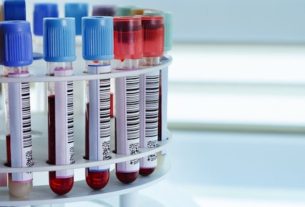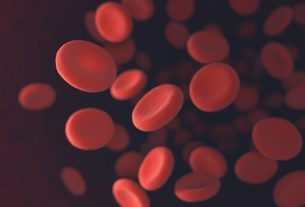Milk can reduce the effect of antibiotic medicines, such as tetracycline or ciprofloxacin, or thyroid medicines, such as levothyroxine, for example, as well as iron-based supplements. This is because milk contains large amounts of calcium that can bind to the active substances of these medicines, preventing their absorption and cutting their effect.
Furthermore, milk contains xanthine oxidase, which is an enzyme that participates in the metabolism of proteins, such as purines, which can reduce the effect of mercaptopurine, a medicine indicated for the treatment of acute lymphoblastic leukemia.
Therefore, ideally, medicines should be taken with water, and milk-based products and dairy products should be avoided or taken at least 2 hours before or 1 hour after taking the medicine.

The main remedies that should not be taken with milk are:
1. Antibiotics
Some antibiotics should not be taken with milk, as the calcium present in milk can interfere with the absorption of the antibiotic and reduce its effect.
The main antibiotics that should not be taken with milk and its derivatives are:
These antibiotics should not be taken together with milk or dairy products, such as cheese, ice cream or yogurt, for example, and it is recommended to wait at least 1 to 2 hours before or after using the antibiotic to consume dairy products.
Furthermore, in the case of tetracyclines, other antacid medicines or food supplements that contain calcium, aluminum, magnesium or iron, may interfere with the effectiveness of the antibiotic, and it is recommended to wait at least 2 hours before or after using tetracyclines to use these supplements or medicines.
2. Iron supplements
Iron supplements may also have their effectiveness reduced or their effect reduced when taken with milk.
Some examples of supplements that should not be taken with milk are:
- Ferrous sulfate;
- Ferrous gluconate;
- Iron hydroxide.
These supplements should always be taken on an empty stomach, and should not be taken with milk or dairy products, or with calcium supplements, or medicines that contain phosphates, carbonates, oxalates or bicarbonate, for example.
Therefore, it is recommended that iron supplements be taken at least 1 hour before or 2 hours after meals or taking medications. See how to take iron supplements for anemia.
3. Thyroid meds
Thyroid medications, such as levothyroxine, can also be reduced by the calcium in milk, or even juices fortified with calcium.
Levothyroxine is a medicine indicated for hypothyroidism, and should always be taken on an empty stomach, that is, 1 hour before or 2 hours after a meal.
In addition, iron supplements, antacids, calcium carbonate, sucralfate and cholestyramine can also decrease the absorption of levothyroxine, reducing its effect. Learn how to take levothyroxine correctly.
4. Purine analogues
Purine analogues, such as mercaptopurine, may have their effect reduced if taken with milk or dairy products, as dairy products contain xanthine oxidase, which is an enzyme that inactivates mercaptopurine.
Mercaptopurine is indicated for the treatment of acute lymphoblastic leukemia, and must be taken on an empty stomach, so that food does not interfere with its action.
Therefore, it is recommended to take mercaptopurine, with a glass of water, 1 hour before or 2 hours after a meal.
How to avoid cutting the effect of the medicine
Some important recommendations when starting to use medications so that milk and dairy products or other medications do not reduce the effect of the medications include:
- Taking medications always with a glass of water;
- Ask your doctor or pharmacist about foods which may or may not be consumed during treatment;
- Always follow medical instructions regarding medication times and whether the medicine should be taken on a full or empty stomach;
- Communicate to the doctor immediately if you experience side effects or think that the treatment is not working.
Furthermore, it is important to inform the doctor of all medications, medicinal plants or dietary supplements that are used to avoid increasing or decreasing the effectiveness of the medication. See also how to avoid interactions between medicines and food. /drug-interaction/
Bibliography
- UNIVERSITY OF GEORGIA COOPERATIVE EXTENSION. Food-Drug Interactions. 2013. Available at: <https://www.fcs.uga.edu/docs/FDNS-E-89-73a.pdf>. Accessed on September 15, 2022
- AMERICAN PHARMACISTS ASSOCIATION. Understanding Food-Drug Interactions. 2008. Disponível em: <https://www.pharmacist.com/sites/default/files/files/Understanding%20Food-Drug%20Interactions%20-%20eng.pdf>. Acesso em 15 set 2022
- FACULTY OF NUTRITION AND FOOD SCIENCES OF THE UNIVERSITY OF PORTO. Drug-nutrient interaction in cancer patients. 2019. Available at: <https://repositorio-aberto.up.pt/bitstream/10216/122778/2/357847.pdf>. Accessed on September 15, 2022
- BUSHRA, R.; et al. Food-Drug Interactions. Oman With J. 26. 2; 77–83, 2011
- DE LEMOS, ML; et al. Interaction between mercaptopurine and milk. J Oncol Pharm Pract. 13. 4; 237-40, 2007

Sign up for our newsletter and stay up to date with exclusive news
that can transform your routine!
Warning: Undefined array key "title" in /home/storelat/public_html/wp-content/plugins/link-whisper-premium/templates/frontend/related-posts.php on line 12
Warning: Undefined array key "title_tag" in /home/storelat/public_html/wp-content/plugins/link-whisper-premium/templates/frontend/related-posts.php on line 13



